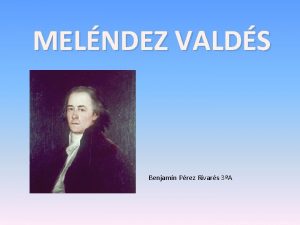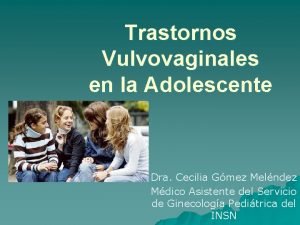Race Dialogues After School Christopher Melendez H 16

- Slides: 1

Race Dialogues After School Christopher Melendez H ’ 16 and Lesly Rivero WS ‘ 17 Hobart and William Smith Colleges Introduction Outline of Lesson Plan During this semester, Christopher Melendez H’ 16 and Lesly Rivero WS’ 17 conducted practical research on the effects of community dialogue. Based within the course, Race Dialogues, taught by Professor Khuram Hussain, we have proposed a revised educational model of dialogue witth high school students. As participants in Professor Hussain’s service learning course, we tackled controversial topics with high school students who experience many of the real struggles and hurtful stereotypes related to race, ethnicity, and socioeconomic status in urban environments. I. Week 1: • Building strong interpersonal relationships • Playing fun icebreakers • Developing ground rules in order to create a safe space A Revised Model This model aims to satisfy 3 distinct goals over the course of 5 weeks: 1. Generate close interpersonal relationships between members of the group. 2. Develop a common language and understanding regarding social issues 3. Create a plan of action directed towards a specific issue affecting the community. II. Week 2: • Introduce racism and other oppressions • Educational lecture • Discuss how descriminiation is apparent in our daily lives Educational Components 1. Room selection should foster a comfortable environment 2. We should have a balanced population of students in collaboration with people who are familiar with theories of social justice 3. Community project planning should start early in the model 4. Reading materials should be distributed in order to supplement topics discussed 5. Some proportion of the earlier meetings should be dedicated to lecture 6. Meetings should be complemented with optional journal entries 7. Meeting times should be selected based on availablity of desired participants III. Week 3 • Share personal experiences • Watching and discussing “Cracking the Code”, a film by Shakti Butler IV. Week 4 • Identify norms, beliefs, institutional practices, police practices, and laws that relate to racism • Creating a “web of oppression” V. Week 5 • Analyze the influence of popular culture • Identify successful social justice movements • Generate a sense of personal empowerment • These dialogues are intended to spark action, to lead to positive change in the community

